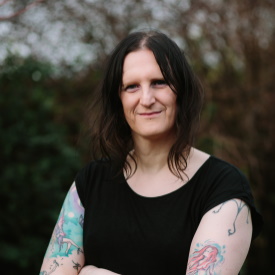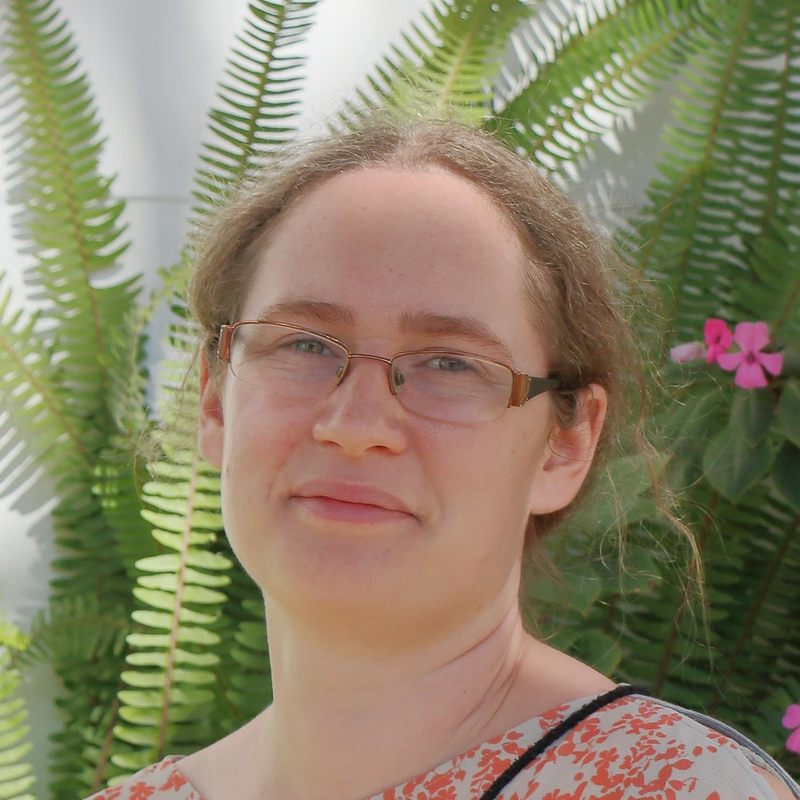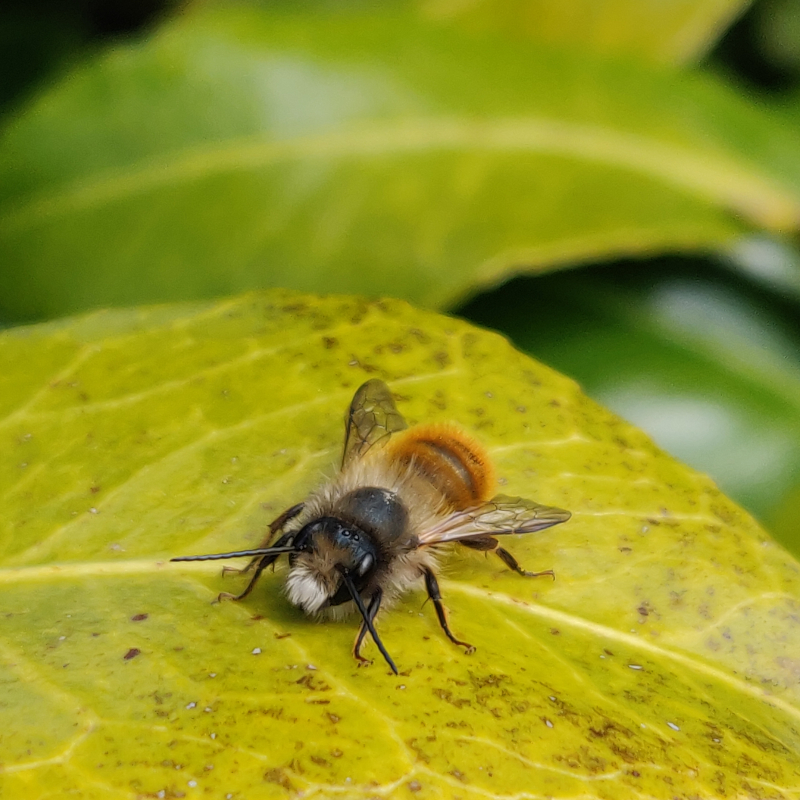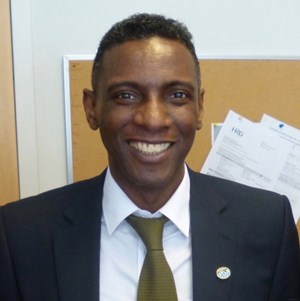To celebrate LGBT History Month and the achievements of LGBT+ scientists, the Royal Society has collated a series of short interviews with four scientists about their work and being a part of the LGBT+ scientific community.
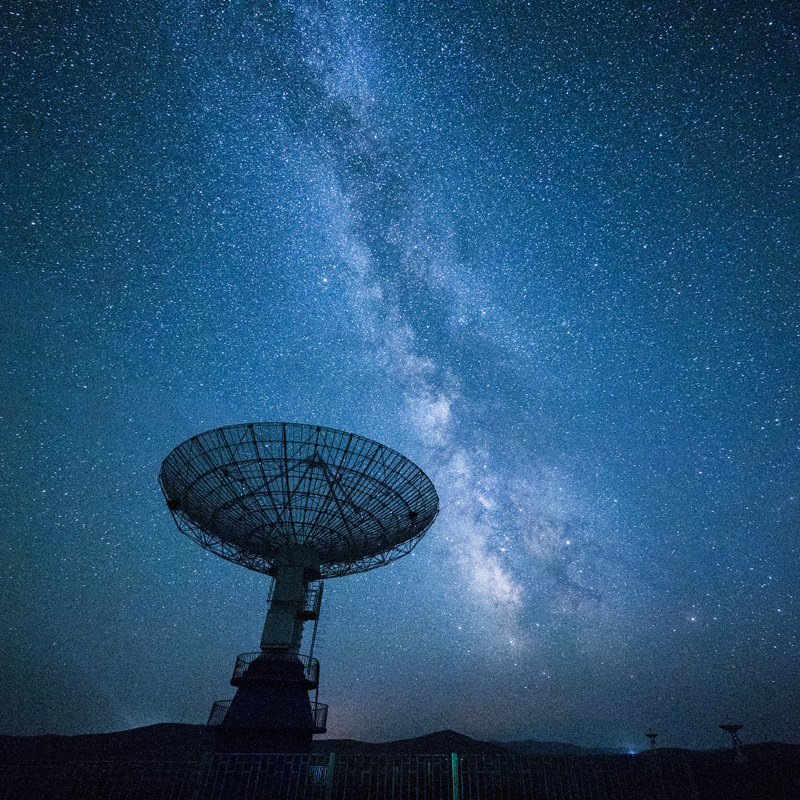
To celebrate LGBT History Month and the achievements of LGBT+ scientists, the Royal Society has collated a series of short interviews with four scientists about their work and being a part of the LGBT+ scientific community.
The scientists taking part in this blog are:
Professor Polly Arnold, Crum Brown Chair of Chemistry at the University of Edinburgh.
Dr Clara Barker, who manages the Centre for Applied Superconductivity in the materials department at Oxford University.
Dr Luke Boulter-Comer, a Principle Investigator at the MRC Human Genetics Unit and member of the Royal Society Diversity Committee.
Dr Vivienne Ming, a theoretical neuroscientist, entrepreneur, and author. She co-founded Socos Labs, her fifth company, an independent think tank exploring the future of human potential.
When did you first know you were a scientist?
Luke Boulter-Comer (LBC): I didn’t want to be a scientist necessarily, but I was always quite inquisitive and never very satisfied with the answers people gave me. I think that is what has driven me into science.
Polly Arnold (PA): By the age of 5 I wanted to be an explorer or a detective. I was about 21 before I realised that being a research chemist covered both of those neatly.
Clara Barker (CB): Even from primary school I always wanted to be a scientist. It was always a natural curiosity of ‘can I do this?’, ‘how I can do this?’
Vivienne Ming (VM): Science seemed inevitable — I just didn’t know that homelessness and gender transitions would be part of my story.
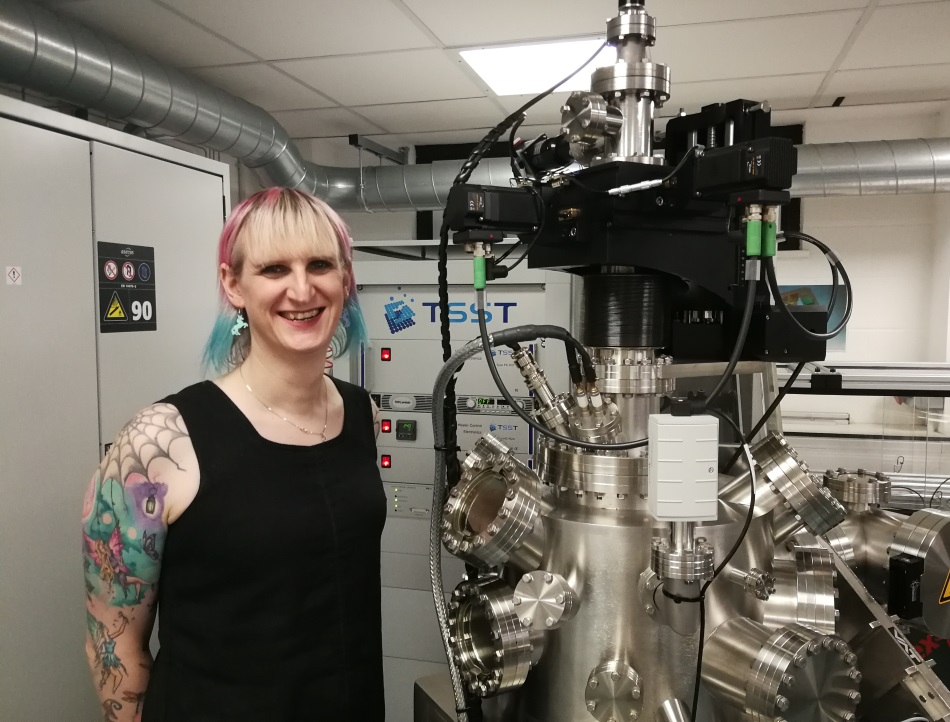
Dr Clara Barker
Who are your LGBT+ heroes and why?
LBC: Rachael Padman, who is a trans scientist. She was doing for transgender scientists what the gay rights movement was doing for people earlier. I just think she is awesome.
CB: Louise Wallwein MBE. She was part of the LGBT rights movement in Manchester and was at the front end in the 1980s when section 28 came in and is still campaigning – she’s amazing.
VM: The clearest thing my messy life story has taught me is that anyone could be doing the work I do, but vanishing few will ever have the opportunity. Help change that and you are my hero.
PA: Lots of people, but sadly, even in the 21st century, I’d need to seek their permission before I would out them in a public forum like this.
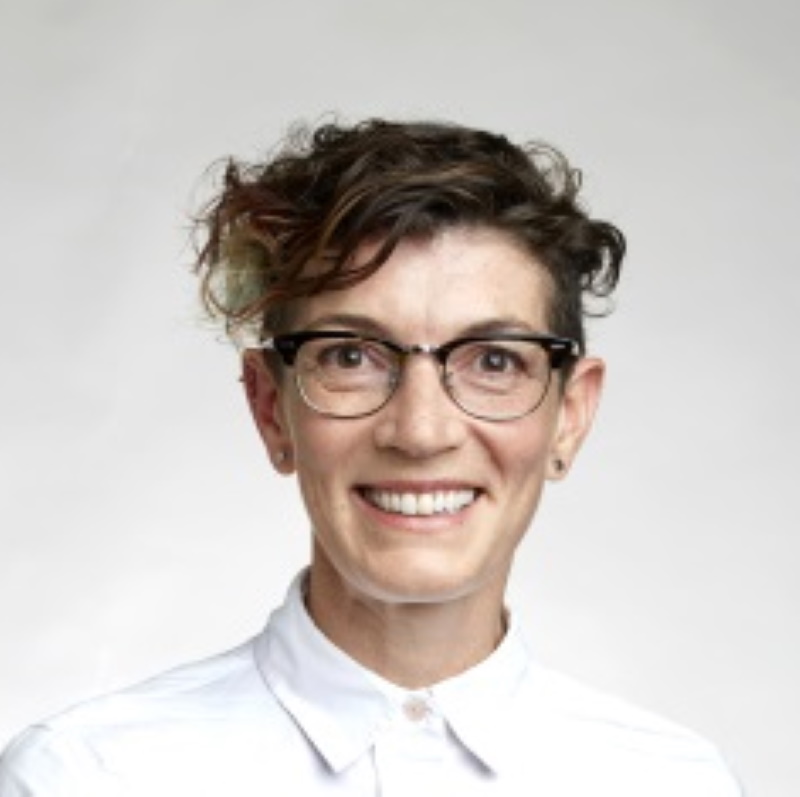
Professor Polly Arnold
How can scientists be great allies for their LGBT+ colleagues?
CB: Using science and the scientific method to look at things that are said and use scientific rigour to counter false narratives. For example, there is discussion around transgender people and how this is a new thing but actually we know that this has been around for a long time.
VM: As scientists we would like to believe that we are perfectly rational and unbiased, but we are humans first. Allies help remind us to falsify our hypotheses and challenge our assumptions even outside the lab.
LBC: Just treat them like people. Recognising diversity gives you better results and better science. LGBT+ people have a different perspective and those experiences are important. Just embrace that and enjoy the diversity.
PA: By calling out bad behaviour whenever they see it. And by realising that the world and its language is constantly changing. People should not worry about whether they’ve remembered all the letters in LGBT+QIA, and simply ask if there’s a better way they could treat people.
What one change in STEM could have a major positive impact for LGBT+ scientists?
PA: The provision of clear and powerful support from universities, employers, and even government agencies over their expectations from, and protection they will provide to people travelling to countries where the climate is hostile to queer researchers.
CB: I think the big change we need is change of attitude. We need to be actively inclusive of different people so that more people feel welcome to be scientists, stay in science and welcome to try to answer the scientific questions that we are looking at.
LBC: I would make it more straightforward to enter the sciences later in life – when you are more confident in who you are. We have to see that there is a drop of LGBT+ people from secondary into tertiary education, and that is possibly because LGBT+ people as a population don’t feel included and promoted in secondary education and issues in their life at that point are complex.
VM: Many fields of STEM foster persistent beliefs that success emerges from innate genius, which interacts with deep biases we all share about genius in race, gender, and sexuality. Breaking down these stereotypes and confronting our assumptions would greatly expand the talent pool for these disciplines and naturally open opportunities for those that don’t fit the stereotypes.
How has better diversity impacted your area of science?
CB: From a personal point of view, the acceptance that I have seen – which I didn’t always think was there – has meant that I feel more comfortable at work which means I am doing more work! We just need to really promote our role models now.
VM: Many of AI’s most notorious failures can be directly attributed to lack of diversity in its practitioners, as those failures were more about understanding the problem domains than about optimizing meta-parameters.
PA: There is a notably higher number of women in my area of research, which has led to a more inclusive atmosphere. This paves the way to including all minorities.
LBC: I think it has ultimately meant that I have met more interesting people. I have a great team of people around me. You can build a much more productive team because you can choose the very best people. That has a direct impact on how you propel your work forward.
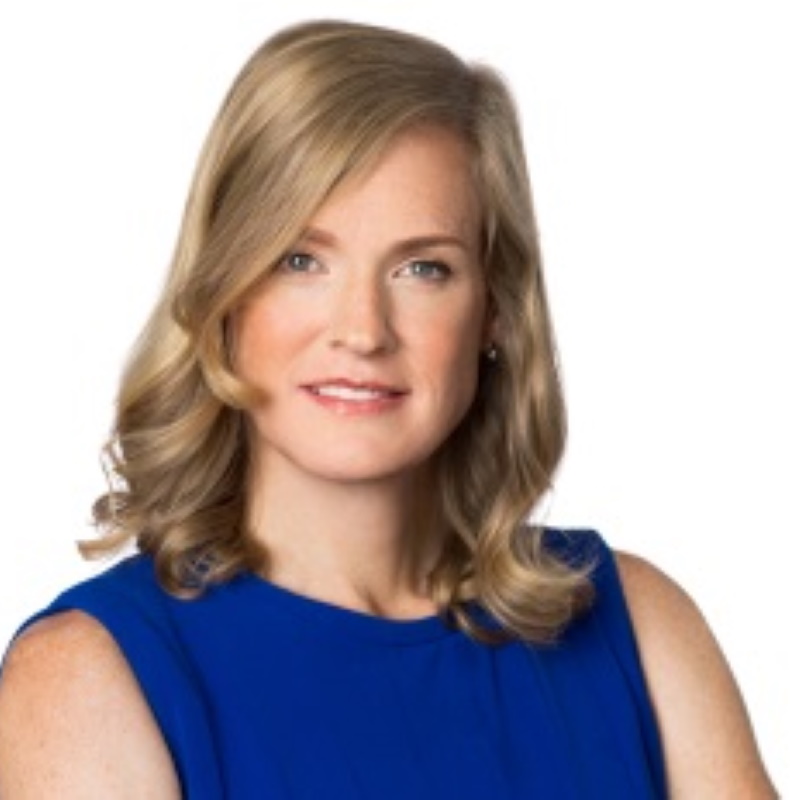
Dr Vivienne Ming
Looking back, what advice or words of encouragement would you give to your younger self, or to aspiring LGBT+ scientists?
CB: I would say that it is possible to be yourself and be a scientist. That was one thing I struggled to understand for a long time. I thought there was a particular type, but even if you don’t see them around, there are a lot of amazing groups and networks. If you can’t find your group, look for them because they are out there.
LBC: I would say to my younger self: be proud of who are you and be comfortable with who you are because it’s OK. To other young LGBT+ scientists: I would say that this is a great career- you will discover things about yourself and the world that no one else knows. So be a scientist – it’s inclusive, it’s friendly and you can be who you want to be here.
PA: In the future, no one will care because it doesn’t affect your science, and the sooner you bring all of yourself to work, the better you will be.
VM: I wish I could share that courage across the decades to that younger me, before the pain and wasted time. Pain cannot be the only key to unlock potential. But I would settle for a very simple message: it’s all going to be OK.
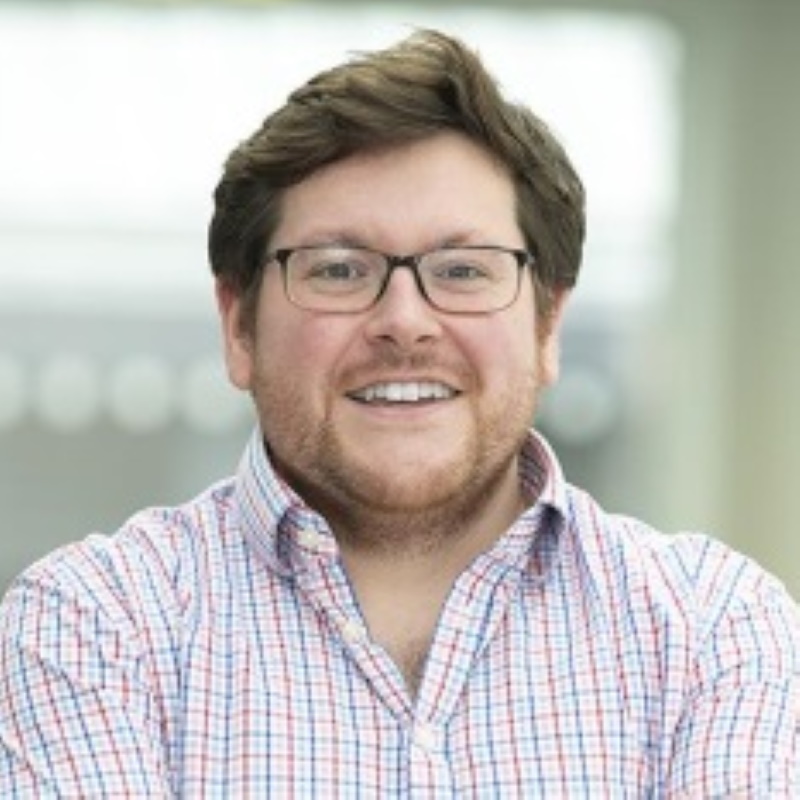
Dr Luke Boulter-Comer
Biographies
Professor Polly Arnold FRS holds the Crum Brown Chair of Chemistry at the University of Edinburgh. She obtained degrees from Oxford and Sussex and was a Fulbright postdoctoral fellow at MIT before returning to the UK to a lectureship in 1999. Her research is focused on the design and synthesis of highly reactive f-block complexes that can activate inert small molecules such as carbon oxides, dinitrogen, and hydrocarbons, and that can provide fundamental information on structure and bonding at the bottom of the periodic table. Polly is an active advocate for inclusion and diversity in STEM. Since her production of ‘A Chemical Imbalance’, supported by the Rosalind Franklin award from the Royal Society in 2012, she has given lectures around the world, advised the Government and industry, and appears regularly on TV, radio, and in print media, to discuss the importance and benefits of diversity in the STEM workforce: www.chemicalimbalance.ed.ac.uk. She was awarded an OBE in 2017 for services to chemistry and women in STEM.
Dr Clara Barker manages the Centre for Applied Superconductivity in the materials department at Oxford University. She is the vice chair of the LGBT+ advisory group at Oxford University and, in 2018, won the first Vice Chancellor Diversity Role Model award from the University. Clara runs a youth group for LGBTI+ people, for which work she won a Points of Light Award from the UK Prime Minister in 2017. Clara shares her story as a trans scientist who, for so long, believed that coming out as transgender would be career-ending, which she recently shared at a TEDx London event.
Dr Luke Boulter-Comer is a Principle Investigator at the MRC Human Genetics Unit, where his group looks at the role of Wnt signalling in physiology, disease and cancer. He focuses on liver cancers and understanding both the genetic drivers of these cancers and developing therapeutics to reduce tumour growth. Following a relatively short spell as a research fellow with Prof Stuart Forbes at the MRC Centre for Regenerative Medicine, he was awarded a Chancellor’s Fellowship at the University of Edinburgh and a Leverhulme Trust Early Career Fellowship to establish his own group in early 2014. Luke received the British Association for the Study of Liver Sheila Sherlock prize in 2015. Luke was involved with the Royal Society’s Parent, Carer, Scientist initiative in 2016, and has a particular interest in the professional challenges faced by the LGBTI+ community.
Dr. Vivienne Ming is a theoretical neuroscientist, entrepreneur, and author. She co-founded Socos Labs, her fifth company, an independent think tank exploring the future of human potential. Dr. Ming launched Socos Labs to combine her varied work with that of other creative experts and expand their impact on global policy issues, both inside companies and throughout our communities. Previously, Vivienne was a visiting scholar at UC Berkeley’s Redwood Center for Theoretical Neuroscience, pursuing her research in cognitive neuroprosthetics. In her free time, Vivienne has invented AI systems to help treat her diabetic son, predict manic episodes in bipolar sufferers weeks in advance, and reunited orphan refugees with extended family members. She sits on boards of numerous companies and nonprofits including StartOut, The Palm Center, Cornerstone Capital, Platypus Institute, Shiftgig, Zoic Capital, and SmartStones. Dr. Ming also speaks frequently on her AI-driven research into inclusion and gender in business. For relaxation, she is a wife and mother of two.


